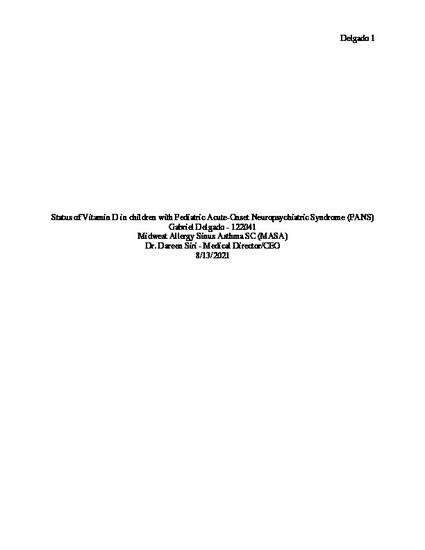
Numerous studies from the National Center for Biotechnology Information (NCBI) have proven that there is an association between autoimmunity regulation and Vitamin D deficiency. Consequently, it has been theorized that improvement of Vitamin D levels will also help moderate autoimmunity levels. However, there are not many studies, if any, on the regulation of the PANDAS (Pediatric Autoimmune Neuropsychiatric Disorders Associated with Streptococcal Infections) autoimmune disease by Vitamin D in child patients. Over a 7 month period, measurement data of 122 total patients with PANDAS, including vitamin D 25-hydroxy level, gender, and age of diagnosis, were collected from the MASA (Midwest Allergy Sinus Asthma) patient database. Vitamin D categories consisted of deficiency, insufficiency, and sufficiency, with respective ranges of 0 to < 20 ng/ml, 20 to < 30 ng/ml, and 30-100 ng/ml. Patients were also categorized into two separate age groups of 11 and under and 12-17 years old. Demographic data, defined by the patient’s gender, age group, and deficiency range, was then collected and formulated into bar graphs. If there proves to be a significant association between vitamin D deficiency/insufficiency and the autoimmune disease PANDAS in children, the existence of this trend will serve as an indicator for PANDAS development.
Available at: http://works.bepress.com/gabriel-delgado/3/

Lori Hall; Alpha Valuations